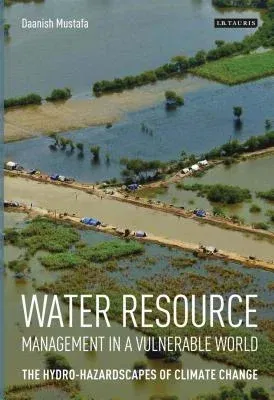Access to water, and the threat of climate change, are two of the most
challenging issues for our planet. A global population now exceeding 7
billion people, together with growing numbers of countries adopting a
more water intensive lifestyle, are placing increased demands upon the
world's water resources, whilst global climate change promises rising
sea levels and increased flooding in some of the world's most densely
populated regions. How are we to address the twin challenge of global
water sufficiency and future climate change? Existing attempts to
improve the management of local water resources, and to alleviate the
hazard of flooding, have often fallen short of the desired result:
attempts by governments and NGOs to provide modern solutions, for
example, have created unforeseen problems adversely affecting future
water resources and leading to increased vulnerability to crises.
Daanish Mustafa's important new book outlines the need to develop an
integrative approach. He introduces the concept of hydro-hazardscape to
show how the diverse social groups affected by a hazard may view it
differently, with the result that their view of the potential threat may
also differ.
It is only by adopting an approach that is attentive to the complexities
and multiple values of water in the communities affected, that we may
hope for any measure of success. Drawing upon a range of international
examples from South Asia, Central America, the Caucuses and the USA, at
scales ranging from the local to basin wide, the author shows how the
hydro-hazardscape approach will help negotiate not only the existing
challenges of equity and environmental quality but also that of
long-term sustainability in a future filled with climate change.

